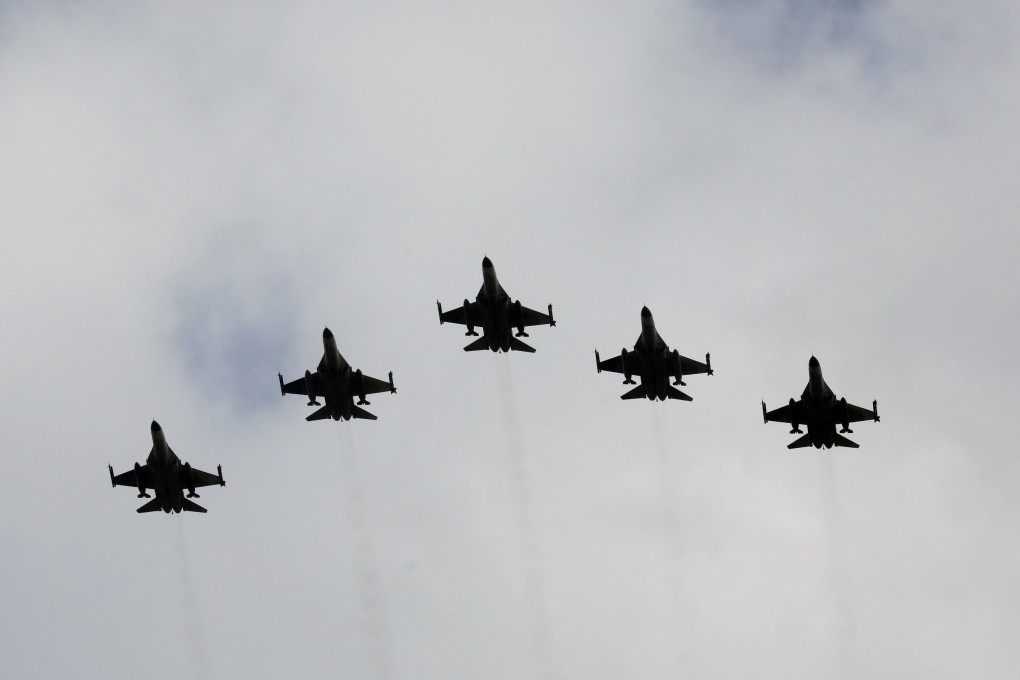China-US tensions: Taiwan’s new F-16 service centre is ‘a sign of more open security ties’
- Links between the US and the island used to be hush-hush but collaboration on jet maintenance facility points to Washington’s desire to normalise military ties with Taipei, observers say
- Beijing sees Taiwan as the most important and sensitive issue in Sino-US relations, says analyst

The facility, a joint project between Taiwan’s Aerospace Industrial Development Corporation (AIDC) and Lockheed Martin in Shalu, central Taiwan, opened on Friday, becoming the first F-16 service centre in the Indo-Pacific region.
Washington, which switched diplomatic recognition from Taipei to Beijing in 1979, once did all it could to play down its military exchanges with Taipei to avoid infuriating Beijing.
Beijing, which considers Taiwan a wayward province that must be returned to the mainland fold by force if necessary, has suspended official exchanges with Taiwan, staged war games close to the island and poached seven of the island’s allies since Tsai Ing-wen, of the independence-leaning Democratic Progressive Party, was elected president in 2016 and refused to accept the one-China principle.